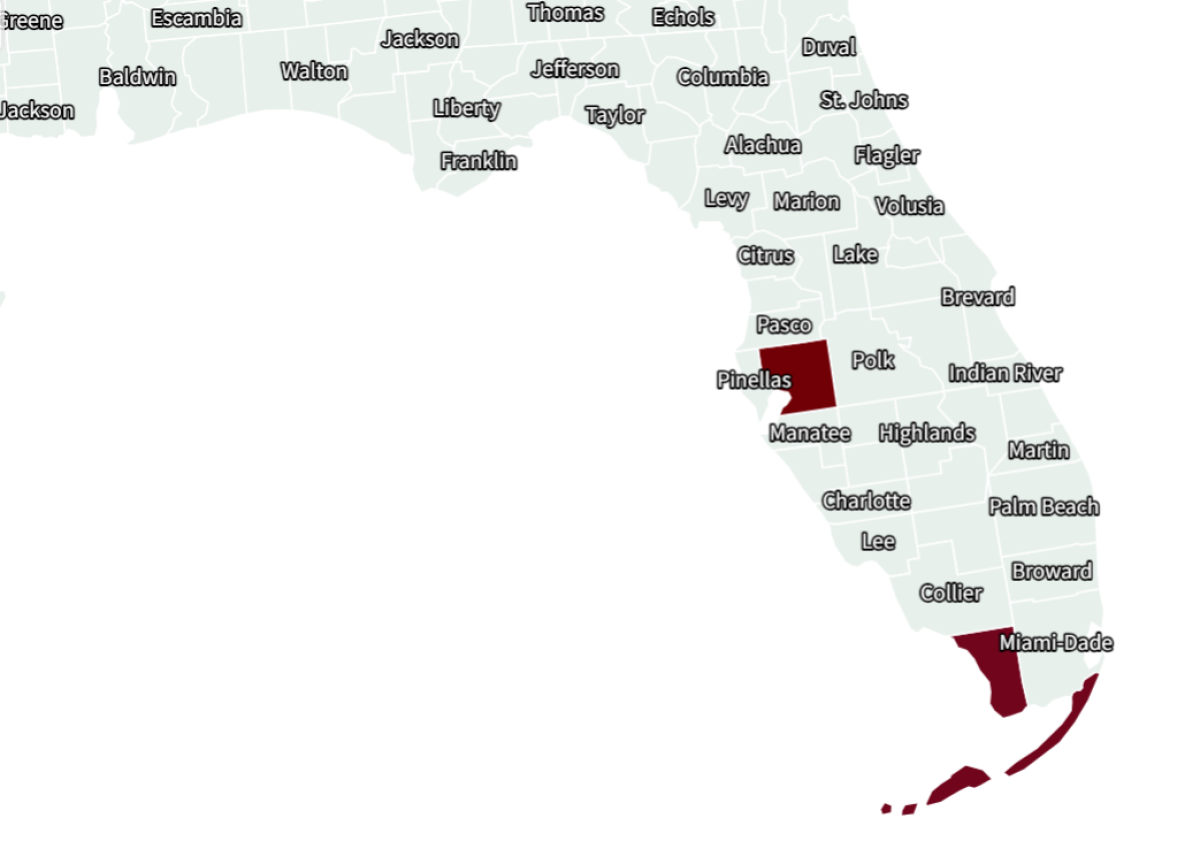
At least eight beaches in Florida have been under water avoidance advisories because of possible fecal contamination.
The Florida Department of Health has issued advisories for some beaches in at least two counties where high levels of enterococcal bacteria, an indicator of fecal contamination, have been found.
Read more: Compare Top Health Savings Account (HSA) Providers.
Florida Governor Ron DeSantis recently vetoed a bill that would have given the state the power to close beaches where tests show the water does not meet health standards. Floridians had already been warned against swimming due to “faecal pollution” concerns earlier in the year.
Newsweek contacted DeSantis’ office, which referred him to the governor’s veto letter.
June has seen advisories issued for the following beaches. of Newsweek The map below shows which counties have beaches that have been affected:
- Higgs Beach, Monroe County
- Smathers Beach, Monroe County
- Bahia Honda Oceanside, Monroe County Seawater
- Sombrero Beach, Monroe County
- Founder, Monroe County
- South Beach, Monroe County
- Simmons Park Beach, Hillsborough County
- Bahia Beach, Hillsborough County
All of these results are from June 19, except for Simmons Park Beach and Bahia Beach, which were tested on June 26, according to the Florida Department of Health’s Healthy Beaches Program database.
Read more: What is a health savings account?
Water is recorded as “poor” when 71 or more enterococci are found per 100 milliliters of seawater.

Bloom/Newsweek
Water that is categorized as “poor” is considered “a potential health hazard to the bathing public” by the Environmental Protection Agency (EPA).
The other two categories that can be applied to water are “moderate”, which is used when 36-70 enterococci are found per 100 milliliters of seawater, and “good” for 0-35 enterococci per 100 milliliters of seawater.
The Florida Health Beaches Program explains, “Enterococci are enteric bacteria that normally reside in the intestinal tract of humans and animals.
“The presence of enteric bacteria can be an indicator of fecal pollution, which can come from stormwater runoff, domestic animals and wildlife, and human sewage.
“If they are present in high concentrations in recreational waters and are ingested while swimming or enter the skin through a cut or wound, they can cause human illness, infections or rashes.”
In his veto letter, DeSantis wrote that the bill “suffers from a fatal weakness” as it “gives the Florida Department of Health authority to close beaches, waterways and swimming pools.”
He continued, “Health departments like the DOH can serve a valuable function, but they should not be given the power to supersede local jurisdictions regarding the operation of beaches.
“I have made water quality and protecting Florida’s natural resources a priority and my administration will continue to do so, but this grant of power to DOH over Florida’s beaches is ill-advised.”
Unusual knowledge
Newsweek is dedicated to challenging conventional wisdom and finding connections in search of common ground.
Newsweek is dedicated to challenging conventional wisdom and finding connections in search of common ground.
#Florida #meach #map #shows #warnings #faecal #pollution #fears
Image Source : www.newsweek.com

Leave a Reply